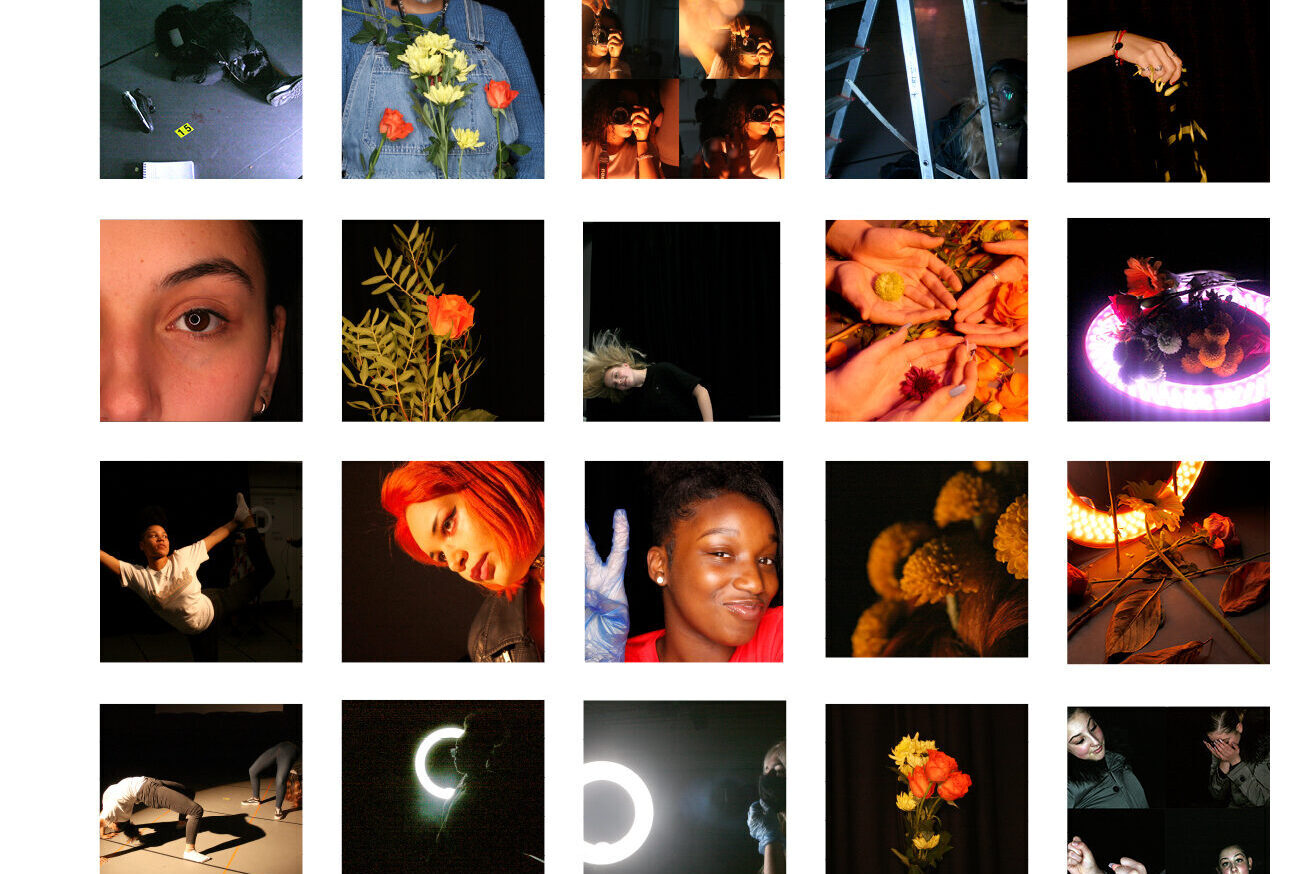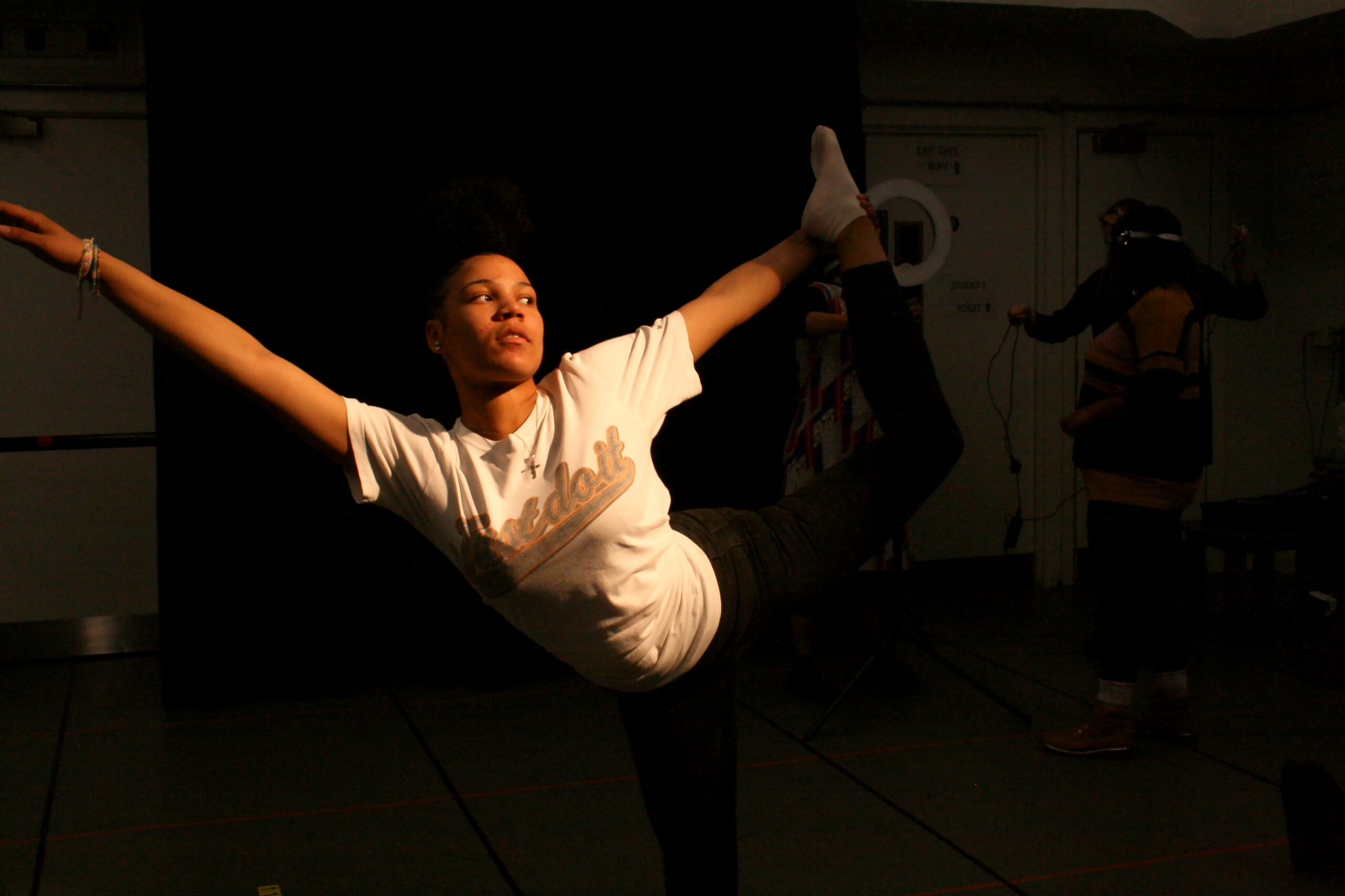By Georgia Dodsworth
December 2020
Imagining Futures is a group workshop programme using visual and performing arts, including drama, creative writing, music and photography combined with evidenced-based dialectical behaviour therapy (DBT) skills. DBT is a type of talking therapy. It’s based on cognitive behavioural therapy (CBT), but it’s specially adapted for people who feel emotions very intensely. The aim of DBT is to help understand and accept difficult feelings, learn skills to manage them and become able to make positive changes. We try to understand how two things that seem opposite could both be true. For example, accepting ourselves and changing our behaviour might feel contradictory but DBT teaches that it’s possible for you to achieve both these goals together.
My name is Georgia, and I’m the project assistant who holds most of the communication with the young women. I know first hand how important the arts are as a tool of expression and to support mental health. As a teenager I was labelled as a “school refuser”, went through the mental health system, and experienced depression and anxiety. I know that if I had a project like Imagining Futures when I was younger it would have helped me so much!
Imagining Futures was due to start with weekly workshops back in April 2020, but due to COVID-19 and going into lockdown the start date was postponed. With over 20 young women already signed up to the programme and looking forward to starting, this was such devastating news.
Due to the delicate nature of the workshops and psychology skills, we felt that Imagining Futures shouldn’t start online, as face to face and building relationships works so much better in person, so we waited until further government guidance.
For the team this brought up a lot of questions like: How do we hold these vulnerable young women who we’ve never met before and keep them engaged during a global pandemic through the using arts as a form of expression and inclusion?
Throughout the first lockdown it was my job to have weekly communication with the young women. I had weekly phone calls/texts with them, and together we spoke about their interests, hopes and dreams. We also sent out bespoke art packs via post, to every single young woman, which included the project handbook, and a selection of art materials, such as stickers, pencils, paints etc.. We wanted these young women to feel like they were part of something, so we made sure they had the means to be creative in the midst of such an anxiety inducing time. We wanted to support them to keep engaged with themselves and the wider world through using different art activities that they would do, and I would share on our private Instagram account, just for the Imagining Futures young women only. This was a space for us to share resources and the artwork in an accessible format.
As the months went by we realised COVID-19 was putting a lot of stress on our young women who were already struggling with their mental health – because of social isolation, traumatic experiences, loss of regular routines, and in many cases a breakdown in accessing specialist face to face support for their mental health. So, in September, we felt it was important to start the delivery of Imagining Futures with face to face workshops at Theatre Peckham.
Imagining Futures has three modules, each paired with an arts and DBT skill which has mindfulness embedded throughout. Module One of Imagining Futures was delivered from September to December 2020 which had the focus on distress tolerance skills and visual arts, with a focus on photography.
Distress tolerance skills are the foundational skills needed, as they help people cope and survive during a crisis. For example, one of the skills is called Self-Soothe, as it’s all about finding ways to calm yourself, and engage in your senses to help you become present and grounded in the moment. All of the DBT skills are led by psychologist Lindsay Smith, who helps make these important skills accessible to all of the young women.
There 9 young women in one group, and 12 in the other, and we ran each session twice on different days.
Both groups responded really well to starting the workshops. Some were apprehensive and anxious, and that was understandable after being in lockdown for just over 6 months. We made sure all the COVID precautions were in place, and the young women felt safe and settled. All the young women came into the room with such curiosity, openness and a feeling of wanting to be connected and accepted. A sense of excitement filled the space, and before we knew it we were halfway through all the workshops.
The visual arts work was led by photographer Grace Gelder, who taught the young women how to use a camera and take creative shots. We also had other guest artists come in who shared their artistic practice such as jewellery making, t-shirt printing, and bag making.
During this first module, the young women explored new ways of working together and we gave them the final say of how they wanted the space to be each week, and what values really mattered to them. We wanted to create a space for their voices to be heard.
We are giving these young women opportunities they may not get elsewhere. We are empowering them with the DBT psychology skills they need to thrive in life, and the confidence to speak out about their interests, and the chance to be creative amongst like minded people and professional artists.
Access is so important to us. We believe everyone should be included, and we will do anything to help these young women come to the workshops week in and week out. We order pizza and treats to be delivered just before the workshops begin, as we believe no one should learn and be creative on an empty stomach! Some of these young women find it difficult to plan their days and think about food, so having hot pizza there for when they arrive was a comforting feeling for many.
The young women are so much more confident now and they’ve only been coming to face to face workshops since September. It just shows how important human interaction and creativity is in so many ways. Some of these young women have bonded with each other and have formed friendships.
The workshops allowed the young women to be creative in so many ways more than they ever imagined, and the outcomes from this first module have been great. Here is what some of the young women think:
“I really enjoyed the activities and I learnt how to deal with my anxiety and I’ve made a lot of new friends”
“I learnt how to use a camera”
“One thing I took away is how to talk to people”
“I’ve learnt how to handle my emotions more and understand others”
Imagining Futures Yr2 Participants, December 2020
We are now concluding the first module with an exhibition at Theatre Peckham, where the young women get the opportunity to share a selection of their artistic work with their parents/carers. At the exhibition we will present certificates of achievement to the young women, along with a small self-care Christmas gift, and a card signed from all of the team. We have also produced a catalogue of the powerful photography images which were captured by the young women in the workshops.
I’m really excited to see their faces when they see their photos professionally printed and lit up at Theatre Peckham. This work is so important to them, as for some, this is the first time they’ve been part of a welcoming group which doesn’t judge on class, background, ethnicity, and removes the stigma from mental health. We want to remove the barriers and create space for collaboration.

This work is so important, now more than ever, with more COVID restrictions on the brink, Imagining Futures aims to remain a consistent part of these young women’s lives, so they feel supported, heard and valued. We meet these young women where they are at, whatever they are feeling, we are here and we care.
Imagining Futures resumes in January 2021, and we will begin Module Two which has the DBT focus on relationships, and the arts focus on Drama.
